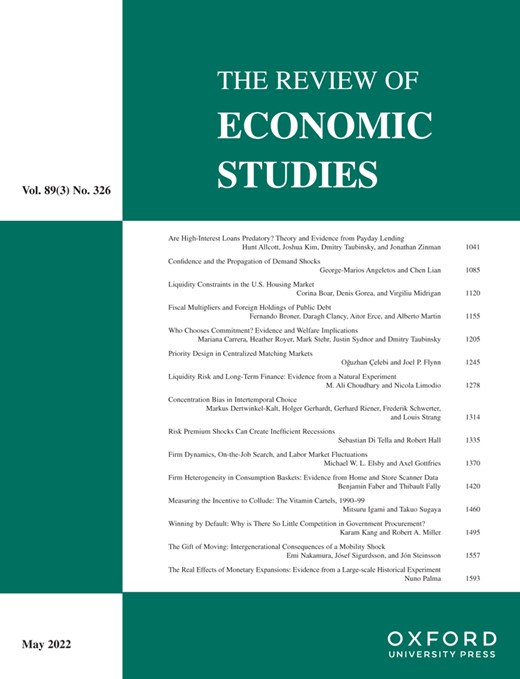-
Views
-
Cite
Cite
Emi Nakamura, Jósef Sigurdsson, Jón Steinsson, The Gift of Moving: Intergenerational Consequences of a Mobility Shock, The Review of Economic Studies, Volume 89, Issue 3, May 2022, Pages 1557–1592, https://doi.org/10.1093/restud/rdab062
Close - Share Icon Share
Abstract
We exploit a volcanic “experiment” to study the costs and benefits of geographic mobility. In our experiment, a third of the houses in a town were covered by lava. People living in these houses were much more likely to move away permanently. For the dependents in a household (children), our estimates suggest that being induced to move by the “lava shock” dramatically raised lifetime earnings and education. While large, these estimates come with a substantial amount of statistical uncertainty. The benefits of moving were very unequally distributed across generations: the household heads (parents) were made slightly worse off by the shock. These results suggest large barriers to moving for the children, which imply that labour does not flow to locations where it earns the highest returns. The large gains from moving for the young are surprising in light of the fact that the town affected by our volcanic experiment was (and is) a relatively high income town. We interpret our findings as evidence of the importance of comparative advantage: the gains to moving may be very large for those badly matched to the location they happened to be born in, even if differences in average income are small.



